Battle for the BBC – Post Screening Discussion
We are excited to host a panel discussion on Monday, 23rd November in collaboration with Al Jazeera’s media critique programme The Listening Post, following the launch of their new documentary ‘Battle for the BBC’. Set against the backdrop of the Johnson government’s threats and manoeuvres, ‘Battle for the BBC’ zeroes in on a tension that has plagued the BBC since its birth almost a century ago – between its dependence on the government, and a desire to be independent of its influence. Featuring interviews with presenter David Dimbleby, Newsnight’s former Economics Editor Paul Mason, former BBC Director-General Greg Dyke, former Radio 4 host John Humphrys and others, the film brings to life the little-known history of the BBC’s tussle with the British state – from the 1926 General Strike, through bitter conflicts with the Thatcher and Blair governments, and up to its present-day stand-off with Johnson and company. You can watch the half-hour film free of charge at this link from 9pm this Saturday, 21st November. Then, at 7pm the following Monday (23rd) the film’s presenter, Flo Phillips, will be in discussion with David Dimbleby and Paul Mason.
‘You can watch the trailer for the documentary here: https://vimeo.com/480726442
The full documentary will be available via this link from 9pm GMT, Saturday 21st November: https://youtu.be/O1lT4uthxg4



The Rise of Populism
Populism can range from persuasive politics to a dangerous agenda that creates internal and external conflict, negates climate change and rejects human rights. We have been experiencing a swell, that could become irreversible if left unchecked. Our panel discusses how we handle this global rise of populism.
with Jon Lee Anderson

American biographer, author, investigative reporter, war correspondent and staff writer for The New Yorker, reporting from war zones such as Afghanistan, Iraq, Uganda, Palestine, El Salvador, Ireland, Lebanon, Iran, and throughout the Middle East as well as during Hurricane Katrina rescue efforts with K38 Water Safety as documented in the New Yorker article Leaving Desire. Anderson has also written for The New York Times, Harper’s, Life, and The Nation. Anderson has profiled political leaders such as Hugo Chávez, Fidel Castro, Che Guevara, and Augusto Pinochet.
more speakers will be announced closer to date …
Luxor
ONLINE Screenings Take 2 steps
- Ticket purchase will give you access (48hrs) to watch the film online, at ‘modern films’
- The Q&A with Director Zeina Durra on Monday the 16th November 19:00 is free by registration here: FREE Q&A
A film by Zeina Durra | English, Arabic Drama | 85min
Cast: Andrea Riseborough, Karim Saleh
When British aid worker Hana (Andrea Riseborough) returns to the ancient city of Luxor, she comes across Sultan (Karim Saleh), a talented archeologist and former lover. As she wanders, haunted by the familiar place, she struggles to reconcile the choices of the past with the uncertainty of the present.
”elliptical, shimmery … mature and mysterious” The Guardian
”excavates an enigmatic love affair” Flipscreened
”Riseborough is exquisite” Moveablefest
Brought to you by Frontline Club in conjunction with Modern Films
A Sea Of Scandals
Panel Discussion
Thursday 19th November, at 7pm GMT, will see the next in our series of environmental events- organised and curated by us at Clear Public Space in conjunction with the renowned Frontline Club #environmentalfrontline.
You can watch a short synopsis video of our last debate in which the EU Commission’s Professor Helmut Maurer, industry-voice Jacob Hayler and environmental campaigner Georgia Elliott-Smith debated By Burning Waste, Are We Burning Our Future?
This week’s aptly titled ‘A Sea of Scandals’ debate will tackle the practices of overfishing, marine protected areas, and the future of sustainable fishing post-Brexit.
Tristan da Cunha, a British territory, has recently declared the largest fully protected marine reserve in the Atlantic Ocean at 687,000 square kilometres- three times the size of the UK. This will close over 90% of their waters to harmful activities like bottom-trawling fishing, sand extraction and deep-sea mining. The archipelago, 2,300 miles east of South America and 1,600 miles west of South Africa joins the UK’s Blue Belt Programme, which, as of today, safeguards 2.7 million square miles of marine ecosystems around the world.
However, whilst 8% of the world’s oceans are designated as MPAs, only 2.6% are fully or highly protected. Furthermore, a Greenpeace investigation has revealed that supertrawlers (freezer trawlers more than 100m in length) spent 2,963 hours fishing in UK Marine Protected Areas (MPAs) in 2019, the equivalent of 123 days. There is mixed messaging regarding MPAs, with some scholars arguing they are little more than “paper parks” – “lines on the map that fail to achieve desired conservation outcomes”.
Furthermore, has overfishing been overhyped? In the North-East Atlantic, average biomass was 35% higher than in 2003, with the number of fishing vessels decreasing by 6%, engine power by 14% and tonnage by 24%. In 2017, almost 80% of the global landings came from sustainable stocks and in 2018 the levels of fish populations were 50% higher than at the start of the decade.
Jonathan Leake, former Environmental Editor at The Times, will be moderating this complex debate again and the panel includes voices from all sides.
Panellists include:
Charles Clover – Journalist and author. Charles writes a weekly column about environmental matters in the Sunday Times and is the former Environmental Editor of the Daily Telegraph. Charles is the executive director of the Blue Marine Foundation and author of The End of the Line: How Overfishing Is Changing the World and What We Eat.
Barrie Deas – Chief Executive of the National Federation of Fisherman’s Organisations. He is the Chair of the North Sea Advisory Council’s Demersal Working Group and sits on the Executive Committee of the North West Waters Advisory Council. Until recently, he was one of the vice presidents of the European trade association, Europeche.
Elspeth Macdonald- Chief Executive Officer of the Scottish Fisherman’s Federation and former deputy Chief Executive of Food Standards Scotland. Elspeth previously worked in the Scottish Government’s Marine Laboratory in Aberdeen.
Richard Benyon- Former British Conservative Party MP and Fisheries Minister. He implemented the Marine and Coastal Access Act including the designations of Marine Conservation Zones.
We will also hear from the Ullapool Sea Savers, a group of passionate, articulate, well-informed and dedicated young people from Ullapool, Scotland. They were featured on Prince William’s A Planet for Us All for their work protecting local marine environments.

Raise Hell: The Life and Times of Molly Ivins
ONLINE Screenings Take 2 steps
- Ticket purchase will give you access (48hrs) to watch the documentary online, at ‘modern films’
- The Q&A on Monday the 2nd November 19:00 is free by registration here: FREE Q&A
FILM: Directed by Janice Engel | Documentary | English | 93 min
The Life & Times of Molly Ivins tells the story of media firebrand Molly Ivins, six feet of Texas trouble who took on the Good Old Boy corruption wherever she found it. Her razor sharp wit left both sides of the aisle laughing, and craving ink in her columns. She knew the Bill of Rights was in peril, and said “Polarizing people is a good way to win an election and a good way to wreck a country.” Molly’s words have proved prescient. Now it’s up to us to raise hell!
“New documentary about the great Texas columnist, sends an urgent message from the Bush years to a nation under Trump with sharp humour” — Guardian“New documentary about the great Texas columnist, sends an urgent message from the Bush years to a nation under Trump with sharp humour” — Guardian
Q&A Monday 19:00pm: With director Janice Engel and producer Carlisle Vanerdervoort hosted by Karen Krizanovich
Molly Ivins was one of the most important journalists of the 21st Century. With the US elections fast approaching, her witty words, tenacious opinions and unflinching political outlooks now ring truer than ever. At her peak, Molly was syndicated in over 400 papers in the US.
Karen Krizanovich, below is a journalist, writer and broadcaster published in Wired, The Times, The Telegraph, The Guardian and Financial Times.

Screening brought to you by Frontline Club in conjunction with Modern Films
Black Lives Matter
Post the death of George Floyd at the hands of a Minneapolis police officer and amidst worldwide protests, Black Lives Matter the movement reminds us all how systemic racism is in our societies. We discuss the movement with a focus on the media landscape, which is still overwhelmingly White. The Frontline Club invites a conversation between leading Black journalists and commentators to ask; what are the consequences of reporting the world predominantly through a white gaze?
Moderated by Nima Elbagir
and joined by…
Marcus Ryder
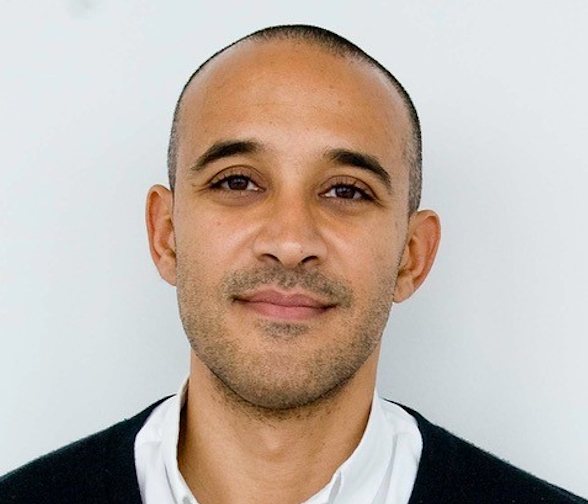
Dr Shola Mos-Shogbamimu

On All Fronts: The Education of a Journalist
“On All Fronts takes the reader on a riveting journey of storytelling. . . From Russia to China to Syria, she navigates the most intense of human experiences while finding the tools to stay emotional.”–author Lynsey Addario
The recipient of multiple Peabody and Murrow awards, Clarissa Ward is a world-renowned conflict reporter. In this strange age of crisis where there really is no front line, she has moved from one hot zone to the next. With multiple assignments in Syria, Egypt, and Afghanistan, Ward, who speaks seven languages, has been based in Baghdad, Beirut, Beijing, and Moscow. She has seen and documented the violent remaking of the world at close range. With her deep empathy, Ward finds a way to tell the hardest stories. On All Fronts is the riveting account of Ward’s singular career and of journalism in this age of extremism.
Following a privileged but lonely childhood, Ward found her calling as an international war correspondent in the aftermath of 9/11. From her early days in the field, she was embedding with marines at the height of the Iraq War and was soon on assignment all over the globe. But nowhere does Ward make her mark more than in war-torn Syria, which she has covered extensively with courage and compassion. From her multiple stints entrenched with Syrian rebels to her deep investigations into the Western extremists who are drawn to ISIS, Ward has covered Bashar al-Assad’s reign of terror without fear. In 2018, Ward rose to new heights at CNN and had a son. Suddenly, she was doing this hardest of jobs with a whole new perspective.
On All Fronts is the unforgettable story of one extraordinary journalist–and of a changing world.
Clarissa is joined by member Ramita Navai (below), an Emmy and Robert F. Kennedy award-winning British – Iranian journalist, documentary producer and author. She has reported from over forty countries and has a reputation for investigations and work in hostile environments

Pandemic Plastic – a Burning Issue
Pandemic Plastic A Burning Issue.
By burning, are we burning our future?
Burning plastics is a primary source of Green House Gases.
The plastic pollution crisis that overwhelms our oceans is also a significant threat to the Earth’s climate. At current levels, greenhouse gas emissions from the plastic lifecycle hinder the ability of the world community to keep global temperature rise below 1.5°C. With the petrochemical and plastic industries planning a massive expansion in production, the problem is on track to get much worse. The UK has committed to bringing all greenhouse gas emissions to net zero by 2050 however at present rates, these greenhouse gas emissions from the plastic lifecycle threaten our local ability and furthermore will hinder the global communities ability to meet carbon emissions targets.
Most plastic begins as a fossil fuel, and greenhouse gases are emitted at each of each stage of the plastic lifecycle: 1) fossil fuel extraction and transport, 2) plastic refining and manufacture, 3) managing plastic waste, and 4) plastic’s ongoing impact once it reaches our oceans, waterways, and landscape. We will be concentrating on the managing of plastic waste. In pre pandemic 2019, the production and incineration of plastic produced more than 850 million metric tons of greenhouse gases—equal to the emissions from 189 five hundred megawatt coal power plants.
2020 and the Covid Pandemic will contribute further to these emissions and our use of single use plastics and has seen us take a large step backwards as a Global community.
In 2016, U.S. waste incinerators released the equivalent of 12 million tons of carbon dioxide, more than half of which came from plastics and research clearly shows that burning plastic in incinerators creates the most CO2 emissions among any plastic waste management method. Yet today 30 more sites in the UK have planning permission pending, and 45 sites are approved, and China already has some 300 waste-to-energy plants operating, with another several hundred in the pipeline.
On 22 October 2020, a month after ‘Earth overshoot day’, the Frontline Club will be hosting a panel discussion between believers in, and enemies of, EfW / Incineration (Energy-from-Waste).
Moderated by Jonathan Leake, former science and environment editor at The Sunday Times, joined also by the EU Commission’s Professor Helmut Maurer and sustainability Advisor Georgia Elliot-Smith, UNESCO Special Envoy for Youth & Environment, and Jacob Hayler (below), Executive Director of the Environmental Services Association. Part of a new series of regular environmental discussions, curated and organised by Clear Public Space, in conjunction with the Frontline Club, to investigate pressing environmental issues, join us!

The next Frontline Club environmental event will be on the 19th November #environmentalfrontline
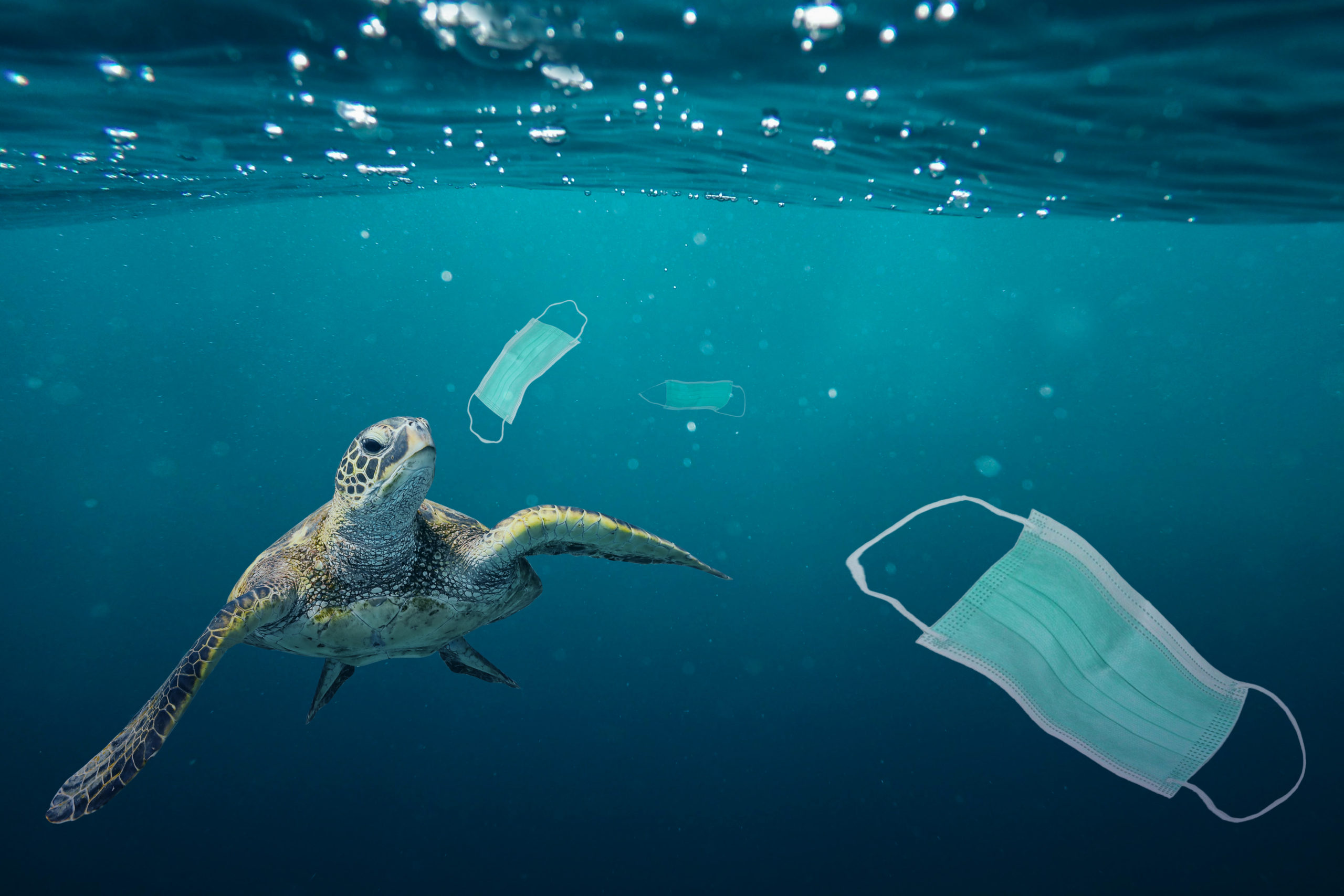
From the front – The Freelance perspective
The Freelancer Perspective:
A discussion with leading freelance journalists about the challenges they face covering world events.
Moderated by Zoe Flood – Independent journalist and filmmaker. Most recently she directed Gamblers Like Me for BBC Africa Eye, which was shortlisted for Best Documentary in the British Sports Journalism Awards and board member of the Frontline Freelance Register.

Joined by:

Leila Molana-Allen is a British-Iranian freelance foreign correspondent, based in Beirut and covering the wider Middle East for the past five years. She is a Special Correspondent for PBS Newshour and previously covered the region for France 24

Salam Rizkis an Emmy award-winning Syrian filmmaker who has reported extensively across the Middle East, including for Vice, the Guardian and AFP. He was a Rory Peck News Features finalist in 2015.

Mónica Villamizar Villegas is a Colombian American broadcast freelance journalist. She was awarded the EMMY Award for Best Investigative Documentary in Spanish and the Gerald Loeb Award for the investigation “The Source”, about child labor in Mexico’s Nestle coffee farms.
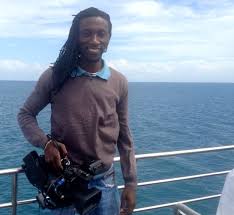
Elijah Kanyi is a Kenyan journalist and filmmaker. His BBC Africa Eye documentary ‘The Bullet and The Virus’ was recently shortlisted for the One World Media Coronavirus Reporting Award. He also works with Africa Uncensored as an investigative filmmaker.
Global Britain: The world’s laundromat of choice
Whatever the scandal, whoever the crook, as long as there’s money involved, there’s always a British angle.
Britain is where kleptocrats love to put their money, where they come to manage their reputations, and to arrange their affairs. A succession of governments has failed to take this seriously enough, focussing instead on the need to keep regulation light and to be open for business.
Post-Brexit, we are supposed to be building a new Global Britain, so what can we do to end our role as the world’s laundromat of choice?
The Frontline Club’s latest kleptoscope features a stellar panel, chaired as usual by journalist Oliver Bullough.
Tom Burgis is the author of the just-released Kleptopia, how dirty money is conquering the world (“a must read” — Washington Post) and an investigations correspondent at the Financial Times.
Anneliese Dodds is a Labour Party member of parliament for Oxford East, and shadow chancellor of the exchequer.
Misha Glenny is author of half a dozen books on Eastern Europe and financial crime, including McMafia, which became the smash hit BBC television series. He is a member of the advisory board of Global Witness.
On the Frontline
Foreign correspondents discuss world news and their profession.
We kick off the season with our Foreign Correspondents from the Frontline. They discuss world conflict hotspots and the effects of the pandemic on their profession. Moderated by Frank Langfitt. Join Jeremy Bowen, Lindsey Hilsum, Nina Elbagir.
Pear, Walnut & Gorgonzola Salad
Lots of what passes as salad in my home is really diabolical dishes disguised by the words ‘light lunch’ meaning we will have it when it is light outside, that’s all. So when I ask you over for salad, do not despair you will eventually find some leaves in there, I promise that you will have loads of taste and a full belly. If you are however looking for calorific salvation, we are all out today …
Ingredients
- 100g pack walnuts
- 3 tbsp honey
- 2 tsp sugar
- pinch of Maldon sea salt
- 2 ripe pears
- 200g mixed salad leaves of your liking
- 1 head of chicory
- 150g Gorgonzola Dolce cheese
- Olive oil
- 2 tsp French mustard
Method
- Preheat the oven to 180°C, toss the walnuts with 2 tablespoons of the honey, the sugar and a sprinkling of sea salt. Spread on a baking tray lined with baking paper and toast in the oven for 10 minutes until caramelised. Leave to cool before using
- Heat a griddle pan on the hob until very hot. Cut each pear into 8 wedges and remove the cores. Brush with honey, Season lightly then chargrill the pears both sides so you get those distinct markings.
- For the dressing, whisk the olive oil and mustard in a small bowl & seasoning.
- Throw the mix leaves in a bowl and dress, I always feel that this salad needs be portioned for fairness. My greedy nature says that someone will take much of the goodies and then you do not get the full mix of cheese, pear, walnut and therefore effect for all.
This is a great side, starter or even a light lunch main, very versatile.
Enjoy your summer!
By Mario Armani
What you do when your year turns out to be a lemon?
As 2020 turned out to be a proverbial lemon, I decided as the saying goes to make the most of it. Refreshing as an addition to your summer lemonade or as an ‘amuse bouche’ but I like it on its own as a light dessert after a meal, cleans and refreshes the palette. This dessert has no enemies and as I have a picky lot to entertain is broad and inclusive as it contains no, nuts, dairy etc.
Ingredients
- 225g caster sugar
- 6 unwaxed lemons
Method
-
to the caster sugar add 250ml water and bring to the boil keep boiling for a couple of minutes and then remove from heat. Ensure when combining to stir to ensure you dissolve the sugar and get no big lumps. Voila, you have sugar syrup. Add the zest of 3 lemons to this and 250ml of lemon juice stir and leave to cool for a couple of hours.
-
Alternatively pour the mixture into a freezer friendly box, close with lid tight and freeze for 1 hour. Remove from the freezer and whisk the half-frozen sorbet to break up the ice crystals, and return to the freezer for a further 40 minutes. Continue whisking the sorbet mixture every 40 minutes, until it has completely frozen. Scoop the frozen sorbet into a food processor and blitz for seconds until smooth and then return to the freezer until frozen again.
This method is my preferred because I do not use buy an ice cream machine, by all means cheat, see if I care! Truthfully, I do not subscribe to buying lots of equipment that stay in my cupboard to be used once a year. I know that an Ice Cream machine would take up valuable real estate in my kitchen cupboard and gather dust, and besides I already have a food processor.
Serve
I like to serve in a hollowed out lemon skins and with a sprig of mint from my garden. Nature’s own disposable cups, less cleaning for me yeah! I promise this is a great treat and my partner often uses the sorbet in our margaritas in the evening…. all right in the afternoon, don’t judge!
British Summertime Blues
Blueberry Cobler
Whilst I love the theory of baking, the reality is a nightmare of equipment and mess in the sweltering heat in the kitchen rather than the garden in our hammock. 2020 really has put things in perspective, for myself at least and anything too complicated is swiftly scratched of my culinary dance card. That said, it is summer and a pudding is always welcome, more so this year as I am comfort eating, as I impatiently await for our much needed summer staycation at Fritton Lakes Retreat, I was taken back with their luxury cabins in the heart of a pioneering thousand-acre rewilding project in Norfolk. I intend to get involved in all the healthy activities, swimming, yoga, paddleboarding but in true holiday spirit will probably do none of it, but the landscape is stunning and honestly just breathing that fresh country air is all a city lad like me needs at the moment. Six more sleeps!!!!
Back to baking, this is the simplest recipe however looks the labour intensive part, it is a favourite I picked up from one of my Ivy Chef’s a decade ago and has that understated effortless elegance that becomes British blueberry cobbler, a classic … enjoy!
Ingredients:
- 1 cup self-rising flour
- 200gr brown sugar & 50gr brown sugar keep separate
- 1 cup milk
- 200gr of salted butter, melted
- 1 vanilla pod (scrape) or vanilla extract
- 2 cups fresh blueberries
Instructions:
-
Preheat oven to 180C
-
Line or spray a 9 inch square baking dish or any favourite dish of similar size.
-
In a bowl, mix together the flour with 200gr of sugar, add milk and then pour in the melted butter and add the vanilla and combine everything.
-
Pour mixture in baking dish and throw in the the blueberries. Sprinkle the 50gr of sugar on top and bake for 45-60min, the top will become a golden brown and if you prick it with a toothpick will comes out clean.
Serve
- Generous helping, top with assorted berries and a scoop of great quality of ice cream or clotted cream even.
Kleptoscope – What are Trump and Covid doing to the fight against corruption?
Trump and COVID-19 are drawing new battle lines on the global war against corruption, making it harder than ever to trace or hold accountable individuals or state for their behaviours.
As the United States has withdrawn from being a world policing force in many areas and adopted a new, more isolationist, international policy, we start to see the effects of this American abdication across the globe, from Guatemala, Ukraine, as well as in the United States itself.
The pandemic is becoming the perfect breading ground for fraudsters and kleptocrats to come out of the woodworks with unprecedented and hence unregulated opportunities, much of this money flowing through London.
In this latest “Kleptoscope, journalist Oliver Bullough is joined by some of the world’s leading experts in the politics and mechanics of corruption, to discuss how the twin threats of Trump and COVID-19 are undermining years of progress, and what we can do about it.
Moderator: Oliver Bullough
Speakers:
Sarah Chayes is one of the world’s most original thinkers about corruption, having gone from working as a journalist for National Public Radio, to running a soap factory in Kandahar, to advising the most senior US officers in Afghanistan. Her latest book Everybody Knows is published in August.
Helena Wood worked for the National Crime Agency and the Treasury, before becoming a financial crime consultant and Associate Fellow at the Whitehall think tank RUSI.
Daria Kaleniuk is executive director of Ukraine’s Anti-Corruption Action Centre, and one of the country’s most renowned activists. She has helped push through several major anti-corruption initiatives.
Mexican tomato & bean soup
Mexican tomato & bean soup
This fresh, piquant summer soup combines many of the ingredients you might find in a feisty salsa, but in this case they re all souped up. Add more chillies if you like it hot, and a handful of fresh sweetcorn kernels, sliced straight from the cob, is a good addition if you have them. A scattering of diced avocado can replace the soured cream, if you prefer.
Ingredients
2 tablespoons olive oil
2 red onions, finely chopped
3 garlic cloves, finely chopped
1-2 medium-hot green chillies, such as jalapeño, deseeded and finely chopped
½ teaspoon ground cumin
600ml vegetable stock
200ml roasted tomato sauce or passata
400g ripe tomatoes, cored, deseeded and finely chopped
400g tin black beans or black eyed beans, drained and rinsed
A handful of oregano, chopped
A pinch of sugar
Juice of 1 lime
A small handful of coriander, roughly chopped
Sea salt and freshly ground black pepper
To finish
4-6 tablespoons soured cream (optional)
A small handful of coriander, roughly chopped
Method
Heat the olive oil in a saucepan over a medium-low heat, add most of the onions (reserving a little to finish the soup) and saute for about 5 minutes, or until softened. Add the garlic, chillies and cumin and stir for a minute.
Add the stock, roasted tomato sauce or passata, tomatoes, beans, oregano and sugar. Season with salt and pepper, bring to the boil and simmer gently for 10 minutes.
Remove from the heat and add the lime juice and coriander. Taste and adjust the seasoning if necessary.
Serve the soup topped with dollops of soured cream, if you like, and scattered with the reserved red onion, chopped coriander and freshly ground pepper.
From the book River Cottage Veg Everyday! – Bloomsbury Publishing
Hugh Fearnley-Whittingstall is a multi-award-winning writer and broadcaster known for his uncompromising commitment to seasonal, ethically produced food and his concern for the environment. He has earned a huge following through his River Cottage TV series and books, as well as campaigns such as Hugh’s Fish Fight, Hugh’s War on Waste and his latest, Britain’s Fat Fight and, his latest, War on Plastic with Hugh and Anita.
Documentary Development, Funding & Production Masterclass
He has worked all over the world, most notably for the BBC and Discovery.
He is also an award winning media trainer, designing and delivering film and editing courses for video-journalists and self-shoot producers.
In 2014 he was awarded the coverted, ‘Rising Star award’ at the 2014 Canadian International Film Festival for his BBC documentary ‘Burying the Past. He continues to shoot documentaries and deliver training for broadcast and commercial organisations all over the world, including: the BBC, Canon Europe, Press Association, The Frontline Club and many others.
Amen Ramen – Some like it hot!
OK, so we entertain a lot and we do not have time or inclination to get into canapés, starters, main, etc etc. Truly nobody does and although everything has its time cooking for me should not be a stress rather a pleasure and so I am always after how to get the biggest culinary bang for my buck. I love this dish as although it looks daunting it honestly is not it just requires a few ingredients you may need to plan for however in my Clapham larder are always a plenty, for research purposes only, cough cough!
The Ramen will please everyone this dish has no enemies, is adaptable and versatile and to be perfectly honest with you was inspired by a conversation with a friend that inspired, last nights dinner, thank you to my home chef partner Val, that reminded me how brilliant this dish is. Simple, fresh, and full of goodness, ok so pay attention, because this is truly so simple but looks quite a mountain.
Ingredients:⠀⠀
4 carrots (organic) ⠀⠀⠀
1/2 cauliflower⠀⠀⠀
3 tbsp oil ⠀⠀
1 tsp salt⠀⠀⠀
1/2 tsp paprika⠀⠀⠀
1/4 tsp pepper⠀⠀⠀
1/2 large yellow onion, diced small⠀⠀⠀
2 cloves garlic, minced⠀⠀⠀
2 inch piece ginger, minced⠀⠀⠀
1 1/2 tbsp red curry paste⠀⠀⠀
4 cups filtered water⠀⠀⠀
2 cans coconut milk⠀⠀⠀
1 1/2 tbsp soy sauce⠀⠀⠀
2 tsp bouillon paste (powder will also do)⠀⠀
1 1/2 tbsp hot sauce of choice⠀⠀⠀
1 small bunch broccolini, chopped and a handful of green beans⠀⠀⠀
2 heads bok choy
(2 ounce) noodles⠀⠀⠀
EXTRA EXTRA!
Serve with Lemon or Lime wedge & coriander and controversial we have ours with a perfectly poached egg on top, what too much? Then also add some crispy onion on top!⠀
Instructions:⠀⠀⠀
1.Preheat oven chop carrots in sticks and cut cauliflower into florets. drizzle with oil, then season salt, pepper & paprika. Bake in preheated oven for 30 minutes.⠀⠀⠀
2.In a large pot heat oil your minced garlic & ginger and the finely chopped onions a pinch of salt, then heat and mix for 3min.⠀
3. Add curry paste, water, turmeric, soy sauce and both cans of coconut milk, bring to boil and mix all ingredients well.
4. Reduce now to a simmer then add the bouillon paste, and hot sauce, you choose this as you know your desired tolerance levels.
5. Chop bok choy and broccolini and beans and add to the simmering curry pot and cook for 5-6 minutes or until vegetables are tender. Turn off heat and taste, adjust seasonings & spice if needed.⠀⠀⠀
6.About 5 minutes before serving cook your ramen noodles according to the directions on package. When ready to serve, divide noodles between serving bowls, top with hot curry, baked carrots, cauliflower & finish it off with coriander & lime/lemon and your optional poached egg.
Chinese spoon & Chopsticks to ensure less cutlery to polish at the end. Enjoy!
Courgette & Parmesan Fries
From all the delicious classic dishes in the clubs repertoire I find that the one thing that people often refer to me as their cheeky favourite is our crispy parmesan coated courgette fries. I know that in bikini season, it is a sin to meander off the salad and the juice mantra but ‘hey ho’ this year really does not count on my calorie counter. As it is basically a vegetable, it’s carb free and I am soo chalking this down as one of my five even if some crispy parmesan accidentally got stuck on it in the process.
As I chomp on my second serving of these crispy courgettes, I find myself pondering why our work armour never quite meets the comfort levels of my new found sartorial sin that is ‘leisure’ wear. Delicious and a crowd pleasing classic, if you are having a hankering, I give you the simple instructions on how to make your own, at home. The humble courgette & parmesan fries.
cooking spray, olive oil
2 eggs
3/4 cup of parmesan cheese
1 tbsp wild oregano
1 tbsp of garlic powder
1 tbsp smokey paprika
1kg of courgettes
pinch of black pepper
Directions:
Preheat oven to 220 degrees C.
Cut the courgettes into fries and throw in the baking tray spray with oil and give them a good shake around to get coated.
Whisk eggs in bowl.
Combine dry ingredients, parmesan, oregano, garlic, paprika and pepper in a separate bowl.
Dip zucchini fries into beaten eggs, shake to remove excess, roll in parmesan mixture to coat.
Place on the prepared baking sheet.
Bake in the preheated oven, turning once, until golden and crispy, 30 to 35 minutes.
Oh….Serve with mint yoghurt or a good quality Greek tzatziki dip!
Enjoy!
The Future Of News
“the format of most TV news really is unchanged and no longer speaks to younger viewers so you’ve got to rethink how you deliver news.” – Richard Sambrook
In the internet age, good quality reporting is needed more than ever. The information age is not keeping everyone informed, as once thought it would, in fact it is dangerously contributing to information inequality, misinformation, polarisation and ultimately much noise. This has made audiences anxious and mistrusting, causing many to be confused and ultimately disengage.
A future model needs to be built on fact checking and trust, with clear procedures to ensure news is not tampered with in any way. This new reporting method, will need be safeguarded by law to allow us to keep everyone informed in an age beyond the traditional broadcasting models. Join our panel as we discuss the ‘future of news’
Chair Elizabeth Palmer, CBS News’ senior foreign correspondent based in London.
Speakers/Panel:
Richard Sambrook He is Professor of Journalism and Director of the Centre for Journalism at Cardiff School of Journalism, Media and Cultural Studies. Journalist, academic and former BBC executive.
Deborah Turness, Head of NBC News International, formerly president of NBC News (2013-2017), and editor of ITV News (2004–2013), which made her the UK’s first female editor of the network news.
Alan Rusbridger is Principal of Lady Margaret Hall, Oxford and the former editor-in-chief of The Guardian.
Shawna Thomas Content Development Executive — Quibi.com, developing short-form news programming with NBC News, CBS News and BBC News for the new mobile platform, launched this month. She is also a political contributor for NBC News and MSNBC.
Libya
Libya had been under siege by the forces of Khalifa Haftar, a renegade general for over a year. On June the 3rd this year the militias aligned with the GNA, unbacked Government of National Accord led by a prime minister, Fayez al-Serraj , to push General Haftar’s and his self styled ‘Libyan National Army’ out of Tripoli’s international airport. The GNA then took back Tarhouna, a city 90km to the south-east and by June 7th reclaiming the oilfields in Sharara, pumping again for the first time since January. The fight has now moved to Sirte, a gateway to General Haftar’s heartland in the east.
Serraj, is supported from west by Turkey since December that saved Mr Serraj and will determine how far he manages to advance. On the corner of the ‘Libyan National Army’ Russia, Egypt and the United Arab Emirates are trying to shore up its hold on the east. After six years of civil war, the division of Libya into a Turkish zone of influence in the west and a Russian zone in the east, a dangerous deadlock is brewing.
The country is in a precarious position, add to this mix the unknown variables of the Covid 19 pandemic and we could see further conflict and a disastrous outcome for the Libyan people.
Join us as we discuss the future of Libya and update us with the latest news in the region.
Chair: Elizabeth Palmer, CBS News’ senior foreign correspondent based in London.
Carlotta Gall NY times, Istanbul bureau chief for The New York Times, covering Turkey
Amru Salahuddien, Freelance Photojournalist
Cracking Secrets, for Savoury Biscuits
Elizabeth Palmer is CBS News’ senior foreign correspondent in London, add to that Frontline Club champion, chairperson and now baker, anything this lady has not time for?
MY SOURDOUGH SECRET
At the start of the coronavirus lockdown my son gave me some of the precious sourdough starter he’d got from his local baker. I treasured it, and made some stunning loaves.
But sourdough starter is a gift that keeps on giving….and giving. It grows in the fridge. If you don’t use it up, you have to throw most of it away. It felt like such a waste.
For the first few weeks, I managed to pass the extra on to friends who (thought they) wanted to start making sourdough bread too. Then I ran out of ambitious friends.
In the nick of time, I discovered the King Arthur Flour webpage of recipe suggestions for what-to-do-with-leftover-sourdough. King Arthur Flour is located in Vermont. One day I hope to visit to tell them I love them.
In the meantime I have had a blissful time making their recipe suggestions, including these wonderful biscuits (Americans would say crackers) that are fantastic with cheese or all alone as a snack. And they keep for days. Weeks, too, I assume – though they have never lasted long enough to find out.
Go heavy on the seasoning. Less is definitely not more. I experimented with finely diced rosemary (at least 3 tbsp.); pumpkin and cumin seeds; and chopped chilis and black onion seed. The sky’s the limit.
If you don’t have sourdough starter – you can substitute ½ cup of flour, ½ cup of water and 2 tbsps. of yoghurt or buttermilk.
HOME MADE BISCUITS/CRACKERS with thanks to King Arthur Flour
Ingredients
- 1 cup (113g) Flour (experiment with white, seeded, malted or brown – or even a blend of several)
- 1/2 teaspoon sea salt
- 1 cup (227g) sourdough starter, unfed/discard (or substitute- see above)
- 4 tablespoons (57g) unsalted butter, room temperature
- At least 2 tbsps of herbs, spices and seeds – anything you fancy
- oil, for brushing
- coarse salt (such as kosher or sea salt) for sprinkling on top
Ingredients
- Mix together the flour, salt, sourdough starter, butter, and optional herbs to make a smooth (not sticky), cohesive dough. Add a bit more water if you need to.
- Divide the dough in half, and shape each half into a small rectangular slab. Cover and refrigerate for 30 minutes, or up to a couple of hours, until the dough is firm.
- Preheat the oven to 350°F/180C.
- Very lightly flour a piece of parchment, your rolling pin, and the top of the dough.
Working with one piece at a time, roll the dough to about 1/16″ thick. The dough will have ragged, uneven edges; that’s OK. Just try to make it as even as possible.
Transfer the dough and parchment together onto a baking sheet. Lightly brush with oil and then sprinkle the salt over the top of the crackers.
Cut the dough into 1 1/4″ squares; a rolling pizza wheel works well.
Prick each square with the tines of a fork.
Bake the crackers for 20 to 25 minutes, until the squares are starting to brown around the edges. Midway through, reverse the baking sheets: both top to bottom, and front to back; this will help the crackers brown evenly.
When fully browned, remove the crackers from the oven, and transfer them to a cooling rack. Store airtight at room temperature for up to a week; freeze for longer storage.
by Elizabeth Palmer
THE ECONOMIC FALLOUT & THE RESPONSE
WORLD ECONOMY POST COVID
Thursday July 2nd, 19:00 BST
In the wake of the Global Crisis, uncertainty in the world economy has led many developing countries to review their business and broader their economic models.
Heavy reliance on the same global supplies created a weakness that allowed many who had manufacturing in their arsenal to recover independently and faster that others. Many believe that COVID-19 will only accelerate the process begun during the 2008-09 Global Crisis possibly spurring a renaissance in manufacturing in rich countries. Of course this will bring its own set of complex issues, cost and conditions of labour and we start conversations of automation as we see the reversing of globalisation.
Under President Xi Jinping, China remains an export powerhouse, but exports as a share of its GDP have fallen from 31% in 2008 to just 17% in 2019.Under President Donald Trump, the United States has adopted an isolationist ‘America First’ policy, moving away from international trade partnerships and are viewing economic activities from China as a national threat, the pandemic has also served in weakening and damaging this relationship further.
As measured by trade flows, we are currently in a fifth historical period, sometimes referred to by the term ‘slowbalisation’ trade increased rapidly in the past decade, faster than the output however, in recent years we have seen that the volume of trade was falling in 2019 even though the world economy was still growing steadily.
The COVID-19 pandemic simply adds further momentum to the deglobalisation trend and added fear and are forcing countries to look closely at their domestic economic sovereignty however that said, greed, fear & uncertainty combined with divisive leadership can give birth to old protectionism and dangerous nationalistic narrative set to policies not seen since the 1930s.
The world economy is at a critical point in history join Elizabeth Palmer our moderator us for this interesting discussion with our panel:
Joseph Stiglitz is an American economist, public policy analyst, and a professor at Columbia University.
Stephanie Flanders is Senior Executive Editor for Economics at Bloomberg and
Alistair Darling, British politician who served as Chancellor of the Exchequer in the Labour Government from 2007-2010
Gado Gado
Gado Gado, ‘mix mix’ was voted in 2018 as one of Indonesias national dishes, many other Asian cultures offer a similar version of this dish, this is my preferred culinary mix
This Indonesia super salad is one that I learned during my time running a little cafe called TROPPO in Sydney in the early nineties. I like to roll it out on a summer bbq, fresh on a lovely evening and a chilled glass of wine and I am an avid lover of eggs, I am greedy and usually serve an extra egg for my home edition, I know gluttony, sin and all that. I know not all are fans of a runny egg but I personally believe it does delicious things to a simple dish and am a fan. And this sauce, now strictly speaking and honest, my original sauce was heavier in peanut butter, I fear it was borderline in becoming a summer satay and kinda killed the idea that you were having something light and possibly even good for you. I adapted mine after trying Jamie Oliver’s, a version slightly adjusted to my taste and have been using ever since. Seems to be a hit also killer as a dipping sauce for bbq meats, try it.
Method
Ingredients
Ingredients for salad:
- 1/2kg new potatoes
- 4 large free-range eggs
- 400g tofu, firm silken
- sesame oil
- a small Chinese cabbage
- 2 ripe tomatoes
- String beans, handfull
- A small bunch of radishes
- ½ cucumber
- A bag of beansprouts
- bunch of fresh coriander
Prep,
- Boil potatoes and cook in salted water for around 15 min, until soft, then slice up.
- Soft-boil the eggs for 6 minutes, or longer if you prefer them more cooked.
- Cube the tofu and fry in sesame oil for around 15 min, until golden, then lightly with salt.
- Shred your cabbage, cut it into thin slices, place in a strainer and slowly pour a kettle of boiling water over it to soften the cabbage & steam your beans.
- Cut your tomatoes into wedges, quarter the radishes and slice cucumber and season to taste.
Sauce:
- 1 clove of garlic
- 50g palm sugar
- 120 g crunchy peanut butter
- 1–2 fresh red birds eye chillies
- 2 limes , the juice of and some zest
- 2 teaspoons good quality fish sauce, (Squid Brand) the one I use
- 1 tablespoon soy sauce
- 1 tablespoon tamarind paste
Throw all the sauce ingredients in a blender and blitz till smooth. Season to taste, lime should come through add more until you feel the zing.
Serving Suggestion:
Share your veg into four bowls add the tofu and then one egg in each, coriander leaves and some finely sliced chilli will add some aromatic notes to this hearty salad.
No-Churn Ice-Cream, Rum & Raisin
“You churn if you want to. This one is not for churning.”
First things first lets make one thing clear, I entered this lockdown with positive spirits and approached it with the gusto of new year resolution list. Spring cleaning CHECK, spend more time with the partner CHECK, call friends that I have not talk to in a while CHECK, start that book that scratches my thoughts and never had the time to explore. The world hit a reset button and I had to get on board, lemons, lemonade and all that malarky.
Three month later, I now find myself in my own bad episode of big brother, I even hear the voiceover in my head each morning, ‘day 86‘, motivation for cleaning has wained, I have all the time in the world to travel, see friends, but not allowed. I made the brave effort to call a friend in Australia that I have not spoken to for 3 years, the time difference meant that she was tipsy and spoke incessantly about her wonderful beach day on the near desserted tropical Magnetic Island, she got stuck there during lock down, seriously is someone messing with me, try Clapham lady. I quickly tired and wrapped up the conversation, I think we broke up I said the words ‘it’s not you, it is me!’ by the way, it was most definitely HER!
I scrapped the rest of the list and thought I would simply do what makes me happy, it turns out what makes me happy lives in my freezer shhhh, tell no one, home made vanilla ice cream therapy today, I promise to clean tomorrow, now please leave I don’t need you to see this!
Ingredients:
397g a tin condensed milk
50ml dark rum & 150g raisins
small pinch of fine salt
500ml double cream
Method:
*Night before – Put the raisins in a saucepan with the rum and heat until just boiling, put in a bowl and cover and leave to soak up all the rum.
For the ice cream, pour the cream into a large bowl and whisk using an electric hand whisk until soft peaks form when the whisk is removed from the bowl. Fold in the condensed milk, then add the raisins and any leftover rum and mix well. Spoon into a container and freeze for 12hrs. Seriously simple and you can vary flavours depending what you are serving, lavender, honeycomb, chocolate, Oreos, get creative.
by resident glutton Mario Armani
ISIS Rising – The War is Not Over Yet.
The war is not yet over
The Pentagon says ISIS fighters in Syria and Iraq number between 14,000 and 18,000, up from 10,000 at the birth of the Caliphate in summer 2014. It still carries out 60 attacks a month in Iraq alone and is active in the Sahel, the Philippines and Afghanistan. And the US believes the group can access a war chest of hundreds of millions of dollars.
So has ISIS been defeated? How is it organised and financed? What is the situation in Iraq and can Iraqi and Kurdish forces counter the threat as US and Coalition support diminishes?
Chaired by Elizabeth Palmer
Wassim Nasr, journalist with France24
Samya Kullab is Iraq correspondent for the Associated Press based in Baghdad.
Charles Lister is a senior fellow and Director of the Countering Terrorism and Extremism Program at the Middle East Institute. His work focuses primarily on the conflict in Syria
Environment: Hope in Hell
Climate change is the defining issue of our time – we know, beyond reasonable doubt, what that science now tells us. Just as climate change is accelerating, so too must we – summoning up a greater sense of urgency, courage and shared endeavour than humankind has ever seen before.
The Age of Climate Change is an age of superlatives: most extreme this, biggest that, most costly ever. The impacts worsen every year, played out in people’s backyards and communities, and more and more people around the world now realise this is going to be a massive challenge for the rest of their lives. In Hope in Hell, Porritt confronts that dilemma head on. He believes we have time to do what needs to be done, but only if we move now – and move together. In this ultimately optimistic book, he explores all these reasons to be hopeful: new technology; the power of innovation; the mobilisation of young people – and a sense of intergenerational solidarity as older generations come to understand their own obligation to secure a safer world for their children and grandchildren
Jonathon Porritt, Co-Founder of Forum for the Future, is an eminent writer, broadcaster and campaigner on sustainable development. Established in 1996, Forum for the Future is now the UK’s leading sustainable development charity, with 70 staff and over 100 partner organisations, including some of the world’s leading companies.
In addition, Jonathon is President of Population Matters, President of The Conservation Volunteers and a Director of Collectively (an online platform celebrating sustainable innovation). He was formerly Director of Friends of the Earth (1984-90), co-chair of the Green Party (1980-83), of which he is still a member, a Trustee of World Wildlife Fund UK (1991-2005) and between 2000-2009 he was Chair of the UK Sustainable Development Commission, providing high-level advice to Government Ministers, Jonathon was installed as the Chancellor of Keele University in February 2012 and he received a CBE in January 2000 for services to environmental protection.
Bill McKibben, a contributing writer to The New Yorker, is a founder of the grassroots climate campaign 350.org and the Schumann Distinguished Scholar in environmental studies at Middlebury College. His latest book is “Falter: Has the Human Game Begun to Play Itself Out?
Nicole Itano is executive director of TVE. She is author of No Place Left To Bury The Dead: Denial, Despair, and Hope in the African AIDS Pandemic.
Chaired by Elizabeth Palmer
A Case For Quesadillas
A MODERN TAKE ON THIS MEXICAN CLASSIC,
When the indigenous people of central Mexico, came across the Spanish settler larder in the mid 16th century, their favourite sweet pumpkin tortillas discovered new fillings, cheese, sheep, lamb & cow, the savoury quesadilla was born. Literally translated to ‘cheese (queso) little thing’. Its versatility has ensured instant and enduring popularity.
Eddie De Silva is Head Chef at Frontline, a Brazilian, culinary genius and all round Mr nice guy. His life evolves around the hot plates of the kitchen conjuring up, all sorts of recipes, menus, desserts, bread, nothing the man can’t do. Not surprising when I asked Eddie to send me a picture of what he was eating today without missing a beat or edit these four pictures were in my inbox. Forever organised, smiley and polite, he truly is the antithesis of what a modern chef in a ‘Hell’s Kitchen’ one would expect. That said after a two month stint as the designated family cook, Ed wanted to deliver something fast and simple that releases him from his duties to enjoy more of the summer sun. The quesadilla has been a family favourite of his since he was a boy, growing up in Brasil. It is simple, easy and allows your ‘fickle little’ patrons choose their own adventure, by way of filling and indeed you need only flip the tortilla over, in a hot pan or skillet, cut and serve.
Set the table with diced vegetables, tomato, onion, cucumber, peppers in green, red and yellow, mushrooms, grilled chicken, fish and a spicy beef mince, refried beans, a heaped bowl of grated cheddar and a bowl of fresh plump soft white mozzarella drizzled with virgin olive oil. Serve with a simple green salad, sour cream with chives and if you really want to go Mexican, spicy guacamole. This food also requires a big salt rimmed glass of Mexico’s favourite lady….. Margarita, for the kids and those who do not partake in alcoholic, a fresh homemade Sicilian lemonade should does the trick and voile or should one say… OLE!
INGREDIENTS/EXECUTION
No big instructions here, re ingredients a simple soft flour tortilla and use whatever veggies you have in you fridge, gather the household, get the kids involved, take it easy today.
Sicilian lemonade – Squeeze 4 juicy lemons, add a litre of chilled water still or sparkling, your choice, 100g (1/2 cup) caster or superfine sugar & stir in a big glass pitcher.
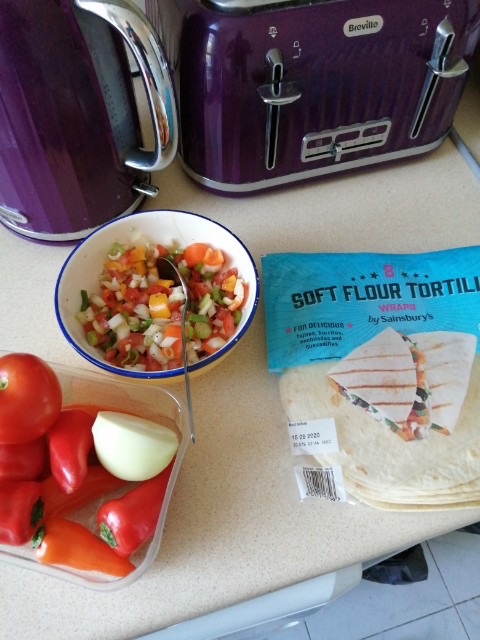

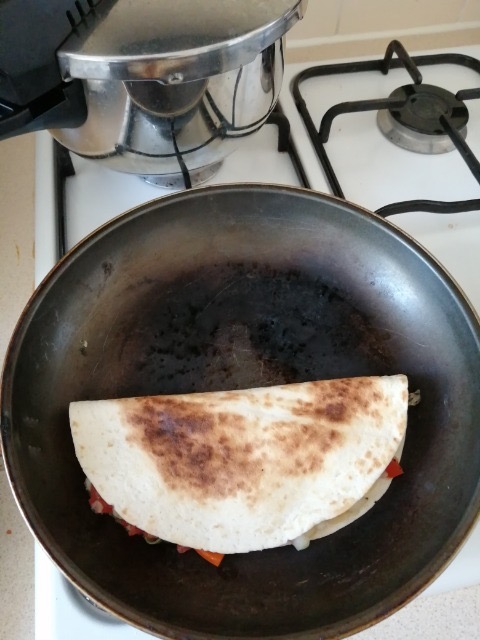
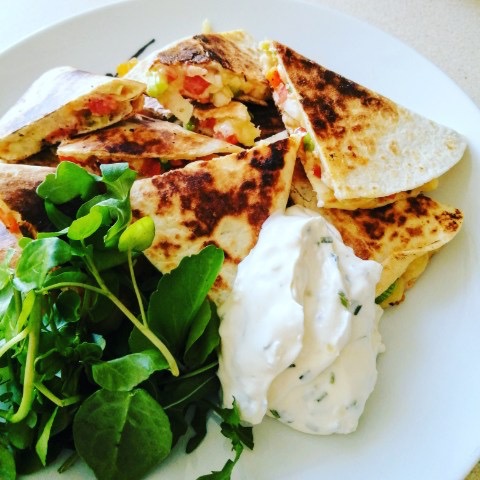
Coastal Comfort Potted Shrimp
PRANVERAS’ POTTED SHRIMP
Potted shrimps are a traditional British dish, set in butter, served in a small pot or ‘Kilner’ jar and enjoyed with bread. As we have been forced to take a step back in time due to the events of the past couple of months, I have been thinking more and more about dishes that have become part of the British culinary narrative. Many classics, such as pies, smoked meats, pickles and indeed the potted shrimp are all a product of resourcefulness and the inventiveness of people in the past to extend produce seasonality, availability with these simple preserving methods. This traditional recipe has been kindly forwarded to us by Frontline co founder and will surely make your way into your entertainment repertoire. It is truly tasty, delicious and a brilliant example of a coastal comfort classic.
Ingredients:
- 250g of brown Morecambe Bay shrimp cooked and peeled,
- 3 shallots finely diced
- 2 cloves of garlic, minced
- 1 tsp ground mace, nutmeg or allspice
- 1/4 tsp cayenne pepper
- Pinch of paprika
- Salt to taste
- A tbsp of oil rapeseed or olive
- 250g of butter clarified, butter that’s been gently simmered to remove its water content, then strained to remove the browned milk solids, creates a more stable cooking fat. Google that first, if you are unsure, trust me it is simple!
Execution:
THE STATE OF PRIVACY- Public Health Vs Civil Liberties
Thursday June 25th 2020 1900 BST
Covid-19 puts governments everywhere between a rock and a hard place. If they continue to enforce strict isolation will their economies collapse? If they don’t, will mortality rates soar?
Some argue for a technological solution, but are aware it may bring increased surveillance. Can a balance be struck between individual privacy and public health needs? In more than a dozen countries technology is already used to track and trace the infection, but how is it used as a state-controlled surveillance tool?
And will the proposed NHS tracking app work with Apple and Google privacy and tracking protocols? What happens to collected data – where will it be stored and what differentiates between centralized and decentralized storage?
Chaired by Elizabeth Palmer, speakers include:
Antonella Napolitano works on cybersecurity and biometrics at Privacy International. She was Communications Manager at CILD, the Italian Coalition for Civil Liberties and Rights.
Chris Yiu is an Executive Director at the Tony Blair Institute, where he leads the Technology & Public Policy team. He is also a member of the advisory board at Digital Leaders, curator of the AI website DeepIndex, and a trustee of ENABLE Scotland.
Jack Stubbs is European Cybersecurity Correspondent at Reuters based in London. He covers cybersecurity across Europe, the Middle East and Africa. Some of his recent reporting has detailed the surveillance products being pitched by cyber intelligence companies to track people with COVID-19, and attempts by state-backed hackers to steal information about the disease and global response efforts. Jack has previously reported for Reuters Russia & Ukraine.
